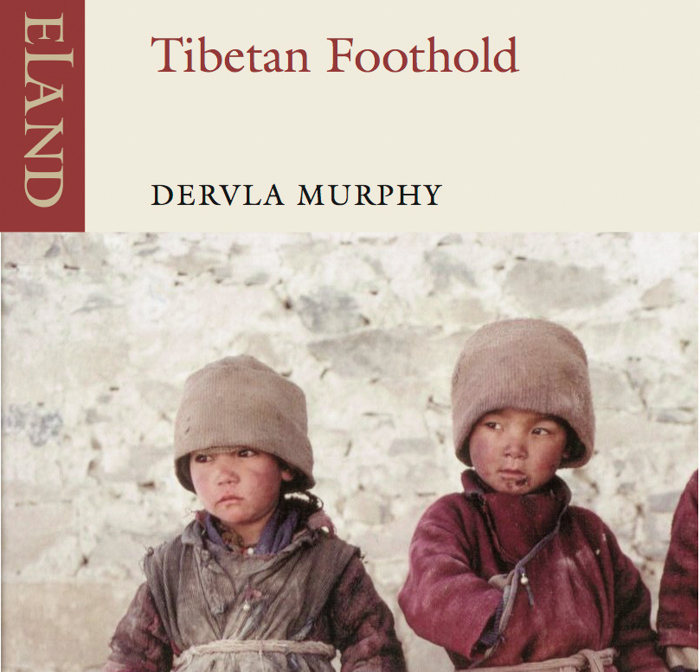We all love these stories, don’t we? A long and difficult journey with a high-minded target. More and more people volunteer abroad as it seems to combine two activities we are fond of: traveling and helping to the poor. Our collective imagination has been taken by a romantic impulse of helping those in need. The contemporary charities are not as strictly connected with religious beliefs and Christian ethos of mercifulness as in the past, thus, undoubtedly, one should ask an important question of how he or she helps? I consider this new trend very interesting. Therefore, I thought I will contribute the global discussion on volunteering by sharing few thoughts on the theme.
Tibetan Foothold
You might be surprised, but I will not share any personal stories here. Although I believe that helping people wherever you are is one of the most difficult activities, and yet, one of the most important ones, I will share here a review of an old book. Dervla Murphy, one of my favorite authors, published a book titled: “Tibetan Foothold”, which I believe is an important voice in the debate whether we should volunteer abroad or not.
The book is a result of a four months stay in Tibet, in the late 60s, when Dervla cycled crossed a continent and arrived in India by bike. Her epic journey was described in “Full Tilt” book, one of the most entertaining and interesting diarys ever written. So, here we are, with young Dervla who had completed her first epic journey. She was proud with a sense of accomplishment, that her plan had been realized. She had a personal introduction to the staff of an orphanage in Tibet who she joined without a second thought.
The Important ‘how’
What is striking from the first page of this book is Dervla’s inexperience in how the western world system of help works in the most disadvantaged areas of the world. And as a result of this, the reader is rewarded by as authentic description of this system. Right there, in, you may say, extreme circumstances, Dervla is faced with a dilemma that all volunteers are faced with: HOW do I help. What helping means to me? What is the best use of my time and skills?
Quite quickly, she discovers the numerous failures of the system, burdensome bureaucracy and lack of proper communication between funding bodies and volunteers on site. It gets only worse: not enough resources has terrifying consequences resulting in the death of some orphans. Dreadful living conditions and extreme poverty was not something Dervla was prepared for, facing this hardship she could have easily decided there was little she could do and she could have blamed the system for not helping to the fullest. Instead, she asked herself HOW did she want to help by making the best use of who she was and what her skills were.
This is a precious testimony that whoever you are and wherever you are, you can make a difference.
Make a difference
In volunteering, we all want to experience the rewarding feeling that our actions resulted in something good for others. Dervla, after realizing that she couldn’t help everybody, focused on one issue: the hearing problems of the orphans. On every day of her stay with the kids, she made an effort to screen their hearing condition and obtain medicine for those in need. It was not numbers nor statistics that she was after, but through a patient, methodical and regular effort she made a real difference. Before she left the orphanage, the percentage of children with hearing problems dropped significantly, which she noted in her book with extreme satisfaction.
I’m not going to spoil your own reading here. The book is full of fascinating stories, incredible adventures, terrifying events, conflicts, triumphs, and personal struggles. It reveals a few dirty little secrets of international helping in the late 60s, and many important issues we should consider before we either support financially or engage personally in volunteering abroad. But the leading message of this book is an optimistic conclusion that irrespectively of the institutional problems of all organizations, it is up to you HOW do you help.
Charity begins at home
It is crucial to think about it before you go. I strongly believe in local charities. It is my personal view that you can understand the needs of others best, when you live close to them, speak the language, know their culture. You can use your judgment to assess the efficiency of the support provided. If you decided to travel far and volunteer then you need to rely on somebody else’s judgment. And then it all comes down to trust.
Don’t get me wrong. This article should not discourage you to devote your time and effort to others. Nor it should discourage to travel and volunteer abroad. On the contrary, I think it can be a very positive experience. All I’m trying to say here is you should think it through, engage in local charity first and make a thorough research on the organization that you want to engage with. At the end of the day, all that matters is your individual attitude, strong will and clarity of intention.



